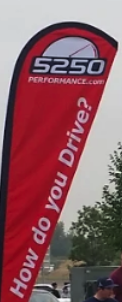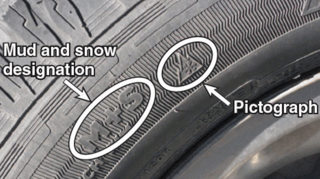 High Performance Shop in Denver Colorado | It doesn't matter if you have rear wheel drive, front wheel drive, four wheel drive or all the drives, if you have the wrong tires, there is little reason to expect traction in snow / ice conditions.
High Performance Shop in Denver Colorado | It doesn't matter if you have rear wheel drive, front wheel drive, four wheel drive or all the drives, if you have the wrong tires, there is little reason to expect traction in snow / ice conditions.
The tires are what touch the road and no amount of engineering can change that. If you don't have the proper tires for the task at hand, you won't be able to do what you want to do.
Winter is here with our first significant snowfall. Are you ready?
If you have summer tires on your car, you're not. Summer tires are made of a fairly stiff rubber compound meant to offer traction in extreme heat while maintaining a stiff sidewall for good handling characteristics.
Once the temperatures begin to drop, the compound will become very hard. This happens as warm as 60 degrees and these tires can be dangerous in colder temps.
All season tires are a compromise between summer and winter tires. The definition of an all-season tire is up to 1 inch of snow on the road surface, I’m sure many will try to contradict me on this, the data doesn’t lie and it doesn’t justify just ‘being careful'. A sidewall mark of M+S (or M/S, M&S, MS) means that you have an all-season tire that has been approved for use in mud and snow by the Rubber Manufacturer's Association (RMA). These tires will provide traction in light snow, but we wouldn't want to be caught in a blizzard with a set of M+S tires
As a Longmont High Performance Shop, All-season tires are not really great at sticking to the road in the summer and they're not really great in the snow, they are a compromise, and for the most part will get you by.
Most all season tires are usually weighted towards one season or the other. They'll be decent summer tires, but not so great in the snow. Or they'll be decent in the snow, but be squirmmey when its hot out. So, what about those 4 times when you want to get to work or get home and the roads / weather is not working in your favor?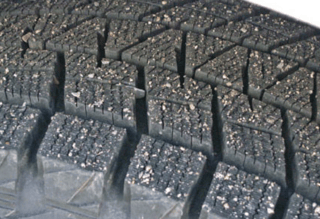 Winter Tires or Not? | If you haven’t ever driven a car with the appropriate tires for the conditions, ask one of your friends to give you a test drive when the weather is demanding them, it will change your perspective.
Winter Tires or Not? | If you haven’t ever driven a car with the appropriate tires for the conditions, ask one of your friends to give you a test drive when the weather is demanding them, it will change your perspective.
Winter tires are like bear claws for your car. These tires are made from soft rubber compounds that stay flexible in arctic temps (down to -20 degrees). They have deep grooved treads with slits cut into the tread blocks called sipes.
The sipes help create edges that bite into snow and ice. Some snow tires can be purchased with studs in them. These are carbide spikes that are set into the tread of the tire. If you know you'll be driving on snow, you need winter tires.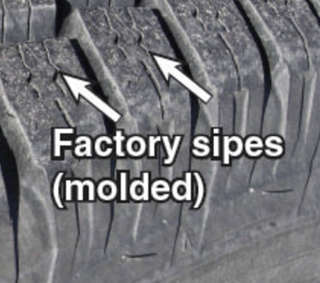 I recommend two sets of tires for most drivers. A set of warm season and a set of cold season tires. Whenever possible, these two sets should be mounted on their own rims. That means two sets of rims.
I recommend two sets of tires for most drivers. A set of warm season and a set of cold season tires. Whenever possible, these two sets should be mounted on their own rims. That means two sets of rims.
Tires can only be mounted and remounted a few times. The metal cords become worn after a few cycles. Most drivers should get a set of all season tires that are heavily weighted towards dry and wet summer performance. If you do a lot of canyon cruising or track days, an actual summer performance tire is a better option. The second set should be a good winter tire. The option to stud a tire is usually not needed. The studs add a significant amount of tire noise and do cause extra wear on roads.
Denver Colorado Dyno Shop | If you plan on dynoing your car, tire choice can skew your numbers. If you can pick which tires you have on your car for a dyno event, choose warm weather tires. The harder compound and stiffer sidewalls transmit power to the rollers better. Winter tires are so soft, they flex and absorb power.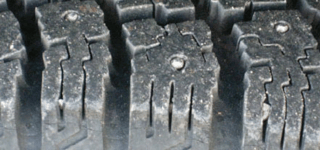 A winter tire will heat up significantly during a dyno session. This is usually not detrimental to a tire if the temperatures are monitored and the tires allowed to cool between runs. If you have studded tires, you are not allowed on the dyno. Studded tires will damage the dynamometer.
A winter tire will heat up significantly during a dyno session. This is usually not detrimental to a tire if the temperatures are monitored and the tires allowed to cool between runs. If you have studded tires, you are not allowed on the dyno. Studded tires will damage the dynamometer.
Be safe out there, get some winter tires, those 4-5 times when it matters to you and your family that you get where you want to safely, you will only smile, you made the right choice.
photo by USDA Forest Service
